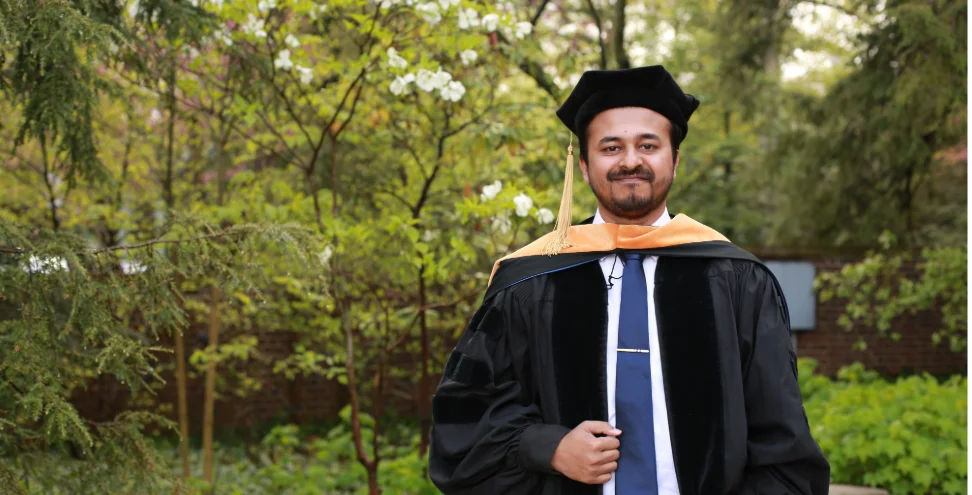Canada, known for its high-quality education and multicultural environment, has emerged as a preferred destination for medical education. Suppose you aspire to pursue an MBBS course in Canada. In that case, this guide will help Indian students go through the essential aspects, including top universities, admission procedures, associated costs, and available scholarships.
Highlights of MBBS Courses in Canada
- Canada is home to leading medical institutions, including the University of Toronto, McGill University, and the University of British Columbia.
- MBBS programs in Canada provide extensive research opportunities, contributing to medical advancements. Students actively engage in groundbreaking studies.
- Completing an MBBS course in Canada ensures worldwide recognition of your degree, opening doors to diverse career opportunities.
- Studying in Canada exposes students to diverse cultures. The University of Toronto, for instance, has a student body representing over 160 countries.
- MBBS programs in Canada integrate hands-on clinical exposure, allowing students to apply theoretical knowledge in real-world medical settings.
Why Choose MBBS Courses in Canada?
- Canada is renowned for maintaining rigorous academic standards, ensuring that students receive a world-class education in medicine.
- Medical schools in Canada are at the forefront of medical research, offering students opportunities to contribute to advancements in healthcare.
- The curriculum is designed to provide a global perspective on healthcare, preparing students to address medical challenges on an international scale.
- MBBS programs in Canada integrate extensive clinical exposure, allowing students to apply theoretical knowledge in real-world medical settings.
Universities Offering MBBS Courses in Canada
- University of Toronto: Offers a comprehensive MD program with an intense research and clinical experience focus.
- McGill University: Provides a competitive MD program emphasizing problem-solving and critical-thinking skills.
- University of British Columbia: Offers an innovative MD program with early clinical exposure.
- University of Alberta: known for its MD program emphasizing practical skills and research opportunities.
- University of Calgary: Offers an MD program with a strong focus on community engagement and clinical experiences.
- McMaster University: Renowned for its problem-based learning approach in the MD program.
- University of Ottawa: Offers a bilingual MD program with a focus on communication skills and patient-centered care.
Types of courses involved in pursuing an MBBS (MD) in Canada:
The medical education system in Canada primarily follows a Doctor of Medicine (MD) program for those pursuing undergraduate medical studies. However, the MD program itself encompasses various stages and components. Here are the typical phases and types of courses involved in pursuing an MBBS (MD) in Canada:
- Pre-Medical Education: Before entering the MD program, students typically complete a bachelor's degree with a focus on prerequisite courses in sciences such as biology, chemistry, and physics.
- Medical College Admission Test (MCAT): As part of the admission process, aspiring medical students may need to take the MCAT, a standardized test that assesses problem-solving, critical thinking, and knowledge of natural, behavioral, and social science concepts.
- Doctor of Medicine (MD) Program: The core component of medical education in Canada is the MD program, which typically spans four years. During this program, students cover various medical subjects, including anatomy, physiology, pathology, pharmacology, and clinical skills.
- Clinical Clerkship: After completing the foundational coursework, students enter the clinical phase, known as clerkship, where they gain hands-on experience in various medical specialties. This phase involves rotations through different clinical departments, allowing students to apply their theoretical knowledge in real-world medical settings.
- Elective Rotations: Some programs may offer elective rotations, allowing students to explore specific medical specialties of interest more deeply.
- Research Opportunities: Many MD programs encourage or require students to engage in research projects, contributing to advancing medical knowledge.
- Licensing Examinations: To practice medicine in Canada, graduates must pass the licensing examinations, including the Medical Council of Canada Qualifying Examination (MCCQE) Part I and Part II.
- Residency Training: After earning the MD degree and obtaining licensure, graduates enter residency training, which varies in duration depending on the chosen medical specialty. Residency programs provide specialized training and practical experience in family medicine, surgery, internal medicine, etc.
- Postgraduate Studies (Optional): Some individuals may pursue further postgraduate studies, leading to fellowships or additional qualifications in specific medical subspecialties.
Admission Process to MBBS Courses
- Eligibility: Typically, aspiring medical students need a strong background in biology and chemistry, along with competitive standardized test scores.
- Documents Required: Admission packages often include transcripts, letters of recommendation, a personal statement, and proof of language proficiency (usually IELTS or TOEFL).
Cost of MBBS Courses
- Tuition Fees: The cost of MBBS programs varies among universities but can range from approximately CAD 20,000 to CAD 40,000 annually.
- Cost of Living: Estimated at around CAD 15,000 to CAD 20,000 annually, covering accommodation, food, transportation, and other personal expenses.
Scholarship Opportunities
- Vanier Canada Graduate Scholarships: A government-funded scholarship program that supports international students pursuing doctoral studies in health sciences.
- Trudeau Scholarships and Fellowships: Offered by the Pierre Elliott Trudeau Foundation, these scholarships support students engaged in research on societal issues, including healthcare.
- University-Specific Scholarships: Many universities in Canada offer scholarships to exceptional students. Check with your chosen institution for available opportunities.
Career Opportunities after Completing MBBS Courses
- Medical Practitioner: Become a licensed medical practitioner, serving patients in hospitals, clinics, or private practice.
- Specialization: Pursue postgraduate studies to specialize in surgery, pediatrics, or internal medicine.
- Researcher: Contribute to medical research by working in research institutions or universities.
- Public Health Advocate: Work in public health organizations to address community health issues and promote preventive care.
In conclusion, pursuing an MBBS course in Canada offers a unique and enriching educational experience. With top-notch universities, a commitment to research, and a multicultural environment, Canada provides a solid foundation for a successful medical career. Scholarships make this journey more accessible, ensuring that talented individuals can contribute to medicine without financial barriers.



.png)








